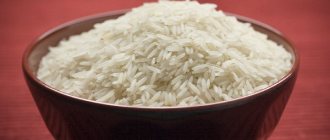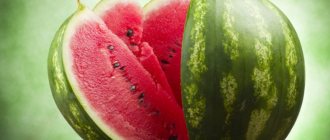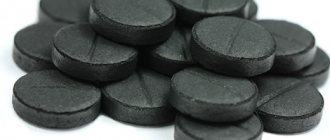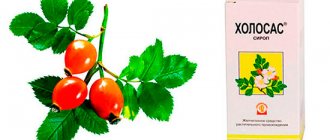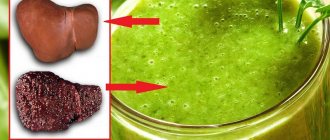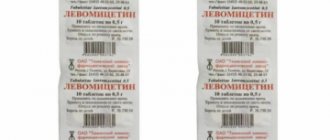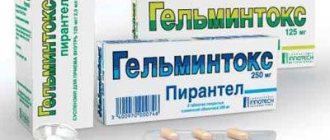The state of the body's immune system and the absorption of nutrients obtained from food directly depend on the tone and motility of the intestines. In order for the digestive system to always work like a clock and get the maximum benefit from food, you should periodically cleanse yourself of toxins and fecal stones. Nature has given humanity many natural medicines, and in this case, herbs for cleansing the intestines will come to the rescue.
Colon cleansing with herbs does not happen quickly and does not give an immediate effect, like an enema. However, the gradual removal of toxins and slag deposits with the help of herbal preparations is good because it has a mild effect without damaging the microflora and without displacing beneficial microorganisms along with pathogens. In addition, cleaning with these methods is easy to do at home.
Benefits of Herbal Cleansing
Human immunity begins with a healthy gut. If the gastrointestinal tract does not cope well with its responsibilities, then the body’s protective functions are sharply reduced.
Healing decoction of medicinal plants for colon cleansing
Benefit of Herbal Cleansing:
- soft action;
- no pain;
- complete removal of old fecal stones, toxins, mucus;
- restoration of beneficial microflora;
- Some herbs have a powerful antiseptic and restorative effect, the ability to improve the health of the whole body.
Summing up
The correct use of medicinal herbs can be an ideal help for normalizing the functioning of the gastrointestinal tract. They can be used as a prophylaxis for intestinal disorders and for exacerbation of hemorrhoids.
If the disease has become chronic or advanced, herbal treatment should be supplemented with medications.
The work of the gastrointestinal tract plays a major role in well-being, health, and mood. If the gastrointestinal tract is normal, the body is cleansed on time, and nutrients, vitamins and minerals are absorbed without problems. If a malfunction occurs, herbs to cleanse the intestines will come to the rescue.
Herbal medicine techniques for colon cleansing
Several methods of use have been developed for medicinal herbs. First of all, because some act better only when swallowed, while others only when introduced into the intestines. There are three methods of using healing herbal infusions:
- drink;
- enema;
- micro douching.
Drinks from healing herbal infusions and decoctions
But infusions and decoctions of medicinal herbs are drunk not just according to certain rules, but taking into account the purpose of the plant used:
- liquid medications that cause a choleretic effect are drunk 30 minutes before meals;
- an aqueous solution of herbs that improves peristalsis is consumed throughout the day, between breakfast, lunch and dinner;
- water extract from medicinal herbs that affect intestinal motility is taken on an empty stomach.
Cleansing enemas with herbal infusions
Most importantly, the procedure can be done at home. With its help, the intestines are most completely cleansed of toxins. Before starting the treatment process, be sure to visit your doctor, because there are contraindications.
The procedure is as follows:
Esmarch mug for performing colon enema
- a rubber container (Esmarch mug) is filled with a strained solution (decoction or infusion) of herbal collection, volume 500 ml;
- the container is fixed at a height of one and a half meters to create pressure;
- the patient lies on his left side, pressing his bent knees to his stomach;
- the tip of the tube is lubricated with Vaseline or vegetable oil and carefully inserted into the rectum;
- the healing solution should be warm, but the temperature should not be more than +38 o C;
- In order for the medicinal solution to begin its cleansing effect, you need to wait 10-15 minutes before going to the toilet.
Enemas are not used if diagnosed:
- intestinal obstruction;
- intestinal adhesions in various parts of the gastrointestinal tract.
Microdouching of the colon
It is recommended to use a syringe to clean the intestines not only to remove fecal stones, toxins, but also mucus. These contaminants are deposited in layers on the wall of the colon over decades. It is advisable to use an enema with a soft tip so as not to damage the wall of the rectum with sudden movements. Before the procedure, you need to not eat for 3-4 hours, so it is best to do douching in the evening. Most often, a decoction of celandine is used for these purposes. The cooking recipe is as follows:
- take one part of dry celandine and 10 parts of water, total volume 50-300 ml;
- boil the mixture for 10 minutes, then strain through a double layer of gauze;
- before use, cool to +38 o C. The course of cleansing is carried out over 2-4 weeks and depends on the degree of accumulation of toxins, the physical condition, and well-being of the patient.
At the same time, to enhance the cleansing effect, drink healing herbal decoctions of the following plants:
- pharmaceutical chamomile , which helps cleanse the blood, reduces the impact of allergens, and has a positive effect on parts of the gastrointestinal tract (GIT);
- plantain , which localizes foci of rotting in the intestines;
- calendula , which softens and disinfects inflammation;
- dandelion , which normalizes the acid-base balance, eliminates the formation of gases, and increases appetite;
- alder cones , which help with disorders of the small and large intestines.
Colon cleansing with herbs in the form of douching is not carried out if:
- the mucous membrane of the large intestine is damaged;
- attacks of hemorrhoids are observed;
- acute intestinal infections were identified;
- Severe diarrhea was diagnosed.
The benefits of oatmeal for the gastrointestinal tract
Due to slagging in the body, a person develops extra pounds and health problems. If treatment is delayed, you will not be able to do without medication. By following an oatmeal diet, you can improve your overall health, give you a slim figure, and improve the functioning of your gastrointestinal tract. Benefits of oatmeal:
- As a scrubbing agent. Oat grains, crushed and whole, act as a scrub on the intestines. Once in the stomach, they help remove harmful accumulations and cleanse the walls of mucus, waste and toxins.
- When consuming oatmeal, fat absorption accelerates, blood clotting improves, and the functioning of the intestinal tract improves. Thanks to its composition, the flakes reduce cholesterol in the blood and reduce fat deposits in the body.
- Oatmeal is rich in vitamins: A, E, D, K, B1, B2, B9, PP, potassium, iodine, zinc, phosphorus, fluorine, chromium, calcium, copper, sodium, iron, amino acids and fiber.
- Oatmeal energizes you and gives you strength for the whole day.
- Nutritionists advise starting the day with a portion of oatmeal, the effect of which is to prevent intestinal ailments. You can diversify your oatmeal diet with muesli, flakes, oatmeal, and porridge.
Colon cleansing with various herbs
Herbal infusions are used to stimulate peristalsis and cleanse the gastrointestinal tract. They may consist of one, two or more plants. For example, they drink herbal infusions, which consist of dried stems, leaves, flowers, fruits, and roots. The most important thing about them is that the medicinal properties of each plant enhance the overall therapy of the entire medicinal group. Based on their effect on the intestines, herbs are selected in the following proportion:
- sedatives that soothe (valerian rhizomes, peppermint leaves, motherwort, licorice) - 1 part;
- dissolving mucus (black peppercorns, a mixture of honey and horseradish) - 2 parts;
- laxatives (seaweed, flax seeds, figs) - 3 parts;
- choleretic and diuretic (nettle and stinging nettle, buckthorn, peppermint, hops and others) - 4 parts.
Such proportions were, of course, not chosen by chance, but taking into account many years of practice. The composition of the collection for cleansing the intestines of waste, toxins, and mucus is optimal for the body and completely harmless. If for prevention the collection is drunk within a week, then for treatment - within 4 weeks. The regimen for taking the medicinal drink is as follows:
- in the morning on an empty stomach;
- 2-3 times during the day half an hour before meals.
But for an enema, as a rule, one or two medicinal plants are used.
Herbs for colon cleansing
Most often, the following medicinal plants or only their parts are used for this procedure:
- flax seeds;
- horsetail;
- common senna;
- buckthorn;
- sagebrush.
Flax seeds
They are sold in any pharmacy. You can eat not only whole (wash under running water and dry), but also ground (in a coffee grinder, mortar). First, take whole flax seeds separately (two tablespoons throughout the day). Secondly, they are added to salads, cereals, and first courses. Thirdly, flaxseed flour can be taken in the morning on an empty stomach. The dose is 1-2 tablespoons, and you need to take 200-250 ml. water.
Flax seeds treat many diseases of internal organs
Also for medicinal purposes the following is prepared from flax seed:
- Infusion . In the morning, pour a small amount of boiling water over the seed flour. Infuse for a day, drink in the evening and eat the sediment. You can add coriander and fennel flour. The course of treatment is 30 days.
- Whole seed decoction . Pour 200 g of flaxseed into 3 liters of boiling water and cook for 2-3 hours. Then cool and filter. Drink a warm medicinal drink according to this scheme. In the morning 30 minutes before breakfast, in the afternoon half an hour before lunch, in the evening before bed. You need to drink 5-6 glasses of healing decoction a day.
Horsetail
There are many varieties of this perennial plant. But only horsetail is considered beneficial for the body.
Horsetail is used to cleanse the intestines
Since it has a number of advantages, it is widely used in medical practice to treat various diseases. Therefore, intestinal cleansing with herbs in many collections also includes the inclusion of horsetail. First of all, because of its beneficial qualities:
- ability to remove waste, mucus, toxins;
- destruction of microbes;
- wound healing;
- stopping bleeding;
- improving metabolism.
Recipe for horsetail decoction
4 tablespoons of dried herbs are poured into a glass of boiling water. If possible, use glass or enamel dishes. Heat in a water bath for 30 minutes from the moment of boiling. Cool for 10 minutes and strain. Drink horsetail decoction 100 ml. 3 times a day after meals. The cleansing course is carried out over three weeks.
Horsetail infusion recipe
2 tablespoons of dry crushed herbs are poured into a thermos and 0.5 liters of boiling water is poured. The mixture is infused for one hour. Take half a glass half an hour before meals 4 times a day.
Senna vulgaris
The natural laxative contains sennosides, which irritate the mucous membrane of the large intestine. First of all, it is this effect that helps to quickly clear the intestines of feces.
Senna decoction recipe
One tablespoon is poured into 0.5 liters of cold water and placed on low heat. Bring to a boil and leave for 10 minutes. Then infuse for half an hour and be sure to filter. Drink 100 ml before bed. The rest of the broth is stored in the refrigerator. The next day the dose is increased by 20 ml. The course of treatment is 7 days. By the end of the week the volume should be 240 ml (a full glass).
Buckthorn
This medicinal shrub uses only the bark.
Buckthorn bark cleanses the intestines well
It has a positive effect on intestinal motility and peristalsis.
Recipe for making a decoction of buckthorn bark
Pour 1 tablespoon of raw material into a glass of boiling water and place in a water bath for 15 minutes. Cool, strain, add a glass of boiled water. Take 100 ml orally. twice a day. First in the morning on an empty stomach, and then in the evening before bed. In case of severe diarrhea, you should immediately stop taking the decoction.
Sagebrush
Only one type of herb is used for medicinal purposes - wormwood.
Decoctions and infusions of wormwood are used to syringe the rectum to improve motility and peristalsis.
This plant is a real storehouse of useful substances, which are collected in one place. Firstly, wormwood destroys rot, kills helminths, and stimulates the motor and secretory activity of the large intestine. Secondly, it promotes rapid cleansing of the rectum from feces.
For example, most often dry wormwood is used to prepare infusions and decoctions. They not only douche the rectum, but also give enemas. The powder can also be taken in dry form.
In what situations is herbal medicine recommended?
Before cleansing the intestines with herbs, it is worth paying attention to the fact that such preventive measures allow you to get rid of toxins not only in a separate system, but also in other organs, for example, the urinary tract.
Thanks to healing decoctions, it becomes possible to quickly get rid of slagging, toxins, fecal clots, heavy metal salts and much more. Thanks to such procedures, it is possible to normalize the patient’s general condition, normalize his hair and nails.
It is also worth considering that different types of intestinal cleansing with herbs, the benefits and harms of which should be studied immediately before the procedures, are recommended to be used when the first symptoms of slagging appear. Treatment should begin if a person suffers from:
- lethargy, decreased performance, loss of strength;
- digestive problems;
- frequent allergic reactions;
- the appearance of frequent constipation and diarrhea;
- increased gas formation;
- frequent headaches turning into migraines;
- the appearance of heartburn, nausea;
- anxiety and increased excitability.
It is noteworthy that herbal medicine is used even in official medicine. For example, in situations where a patient cannot undergo chemotherapy for one reason or another.
Salad "Broom"
Main ingredients:
- Cabbage
- Carrot
- Beet
1st option with normal acidity
Ingredient ratio: 3:1:1
- Shred 3 parts raw fresh cabbage
- Grate 1 part carrot
- Grate 1 part raw beets
Stir everything together until juice appears. Sprinkle the salad with lemon juice and add a little corn and sunflower oil.
2nd option for low acidity
Ingredient ratio 3:1:1
- 3 parts sauerkraut
- Grate 1 part carrot
- Grate 1 part raw beets
Stir everything together until juice appears. Sprinkle the salad with lemon juice (more than in the first option) and a little corn and sunflower oil.
3rd option for high acidity
Ingredient ratio 1:1:2
- 1 part raw fresh cabbage, chopped
- Grate 1 part carrot
- 2 parts boiled beets
- No lemon juice!
- You can add prunes
- Instead of sunflower - only olive oil!
How to use?
- Add 2 teaspoons of dried plant to one liter of boiled water.
- The decoction should sit for about half an hour.
- Drink tea 200 mg 3 times a day.
- Colon cleansing with herbs at home is carried out in courses that last 10-14 days.
- Ready-made pharmacy preparations are taken according to the attached instructions.
Bonus - 4 more recipes for colon cleansing with herbs:
Contraindications
Despite the natural nature of herbal detoxification, it is not always possible. There is a list of contraindications that you need to familiarize yourself with before cleansing it:
- individual intolerance;
- benign or malignant tumors;
- gastritis, gastric ulcer in the acute stage;
- hypertensive crisis;
- haemorrhoids;
- intestinal dysbiosis;
- severe cardiovascular diseases;
- renal failure.
People with chronic diseases can carry out such a procedure only after prior consultation with a doctor. Self-medication can cause relapse and provoke a number of complications.
Consequences of prolonged constipation
Timely cleansing of the intestines is very important. If there is no bowel movement for a long time, feces can cause intoxication of the body.
Signs of intoxication:
- Temperature increase;
- Muscle weakness, cramps;
- Dizziness.
Another negative effect of untimely bowel movements occurs during the rehabilitation period after operations, etc. A weakened body and eating monotonous food can lead to constipation. And if the patient has undergone abdominal surgery, then in order to ensure the integrity of the sutures and to avoid additional stress on the body, doctors prescribe laxatives.
It may be, depending on the illness suffered, that a mild and long-acting laxative is prescribed. For example, after undergoing a course of chemotherapy for cancer. Such treatment methods change the functioning of the entire body as a whole. After chemotherapy, the patient often experiences problems with bowel movements.
